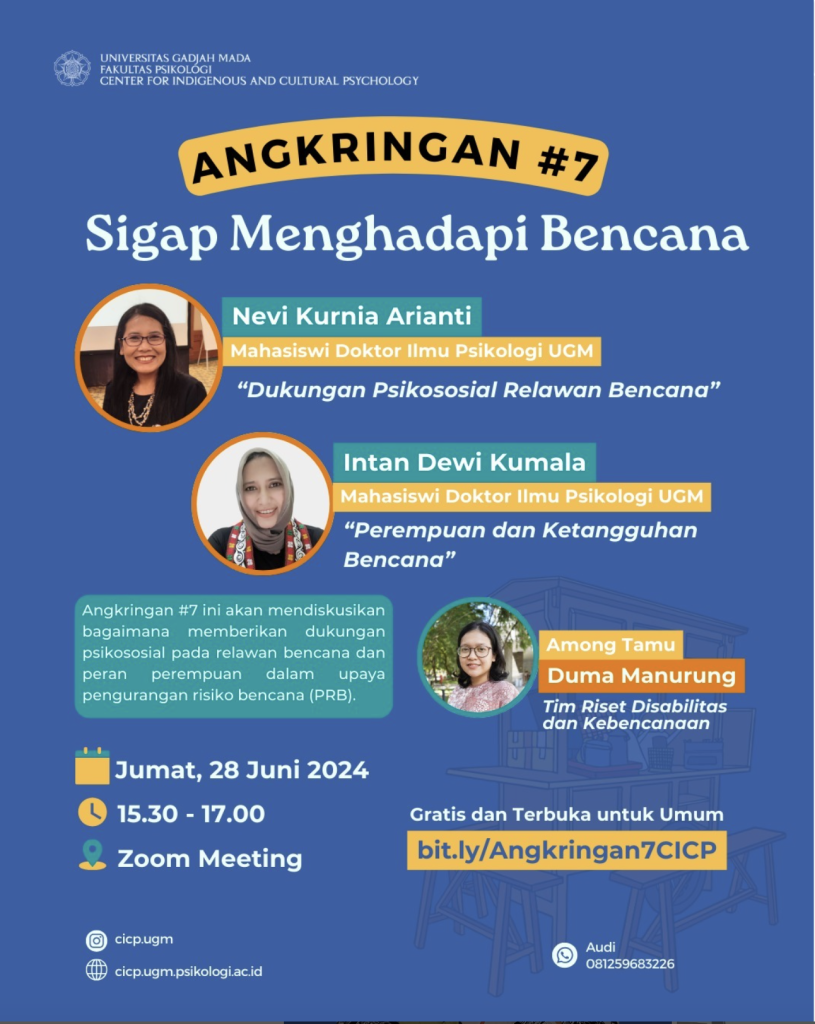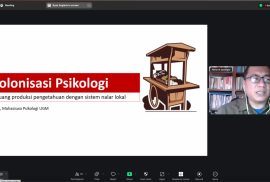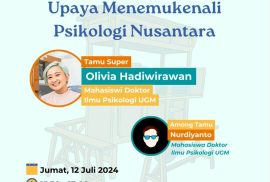Pada Jumat, 26 Juli 2024, Pusat Studi Psikologi Indijinus dan Budaya (CICP) kembali menggelar acara Angkringan CICP, yang kali ini merupakan sesi kesepuluh dari rangkaian diskusi bertema “Psikologi Nusantara, Sudah Sampai Mana?” Acara ini dilaksanakan secara daring melalui platform Zoom dari pukul 15.00 hingga 17.00, dihadiri oleh 78 peserta, termasuk pelajar sekolah menengah yang menunjukkan minat besar pada topik psikologi nusantara.
Jumat, 12 Juli 2024, Pusat Studi Psikologi Indijinus dan Budaya (CICP) sukses menggelar Angkringan CICP ke-8 dengan tema “Menemukenali Psikologi Nusantara.” Acara yang diadakan secara daring melalui platform Zoom ini menampilkan Olivia Hardiwirawan sebagai pembicara utama. Acara dimulai pada pukul 15.30 dan berlangsung hingga 17.00, menarik antusiasme dari berbagai kalangan, termasuk mahasiswa, dosen, peneliti, serta individu yang penasaran dengan kajian psikologi nusantara.
CICP mengadakan workshop untuk umum tentang penyusunan policy brief selama dua hari pada 29-30 Juli 2024 pada pukul 08.00-12.15 WIB.
Hari pertama, penyampaian materi oleh Dr. Diana Setiyawati. Pemateri menyampaikan mengenai pengenalan policy brief kepada peserta, contoh-contoh policy brief, langkah-langkah penyusunan policy brief, strategi melakukan audiensi policy brief pada stakeholder, dan diakhiri dengan membuat tulisan singkat mengenai policy brief berdasarkan tiap-tiap poin sesuai format yang telah disediakan. Pemateri memberikan feedback pada beberapa tulisan untuk perbaikan policy brief yang telah dibuat oleh peserta sebelum kegiatan.

CICP held its seventh Angkringan on June 28, 2024. This special session featured two distinguished speakers presenting on disaster-related topics. Nevi Kurnia Arianti delivered a talk on Psychosocial Support for Disaster Volunteers, accompanied by Intan Dewi Kumala who discussed Women and Disaster Resilience. Both speakers are PhD candidates in Psychology at UGM. The session was moderated by the dynamic Duma Marunung, a member of the CICP research team on disability and disaster.



